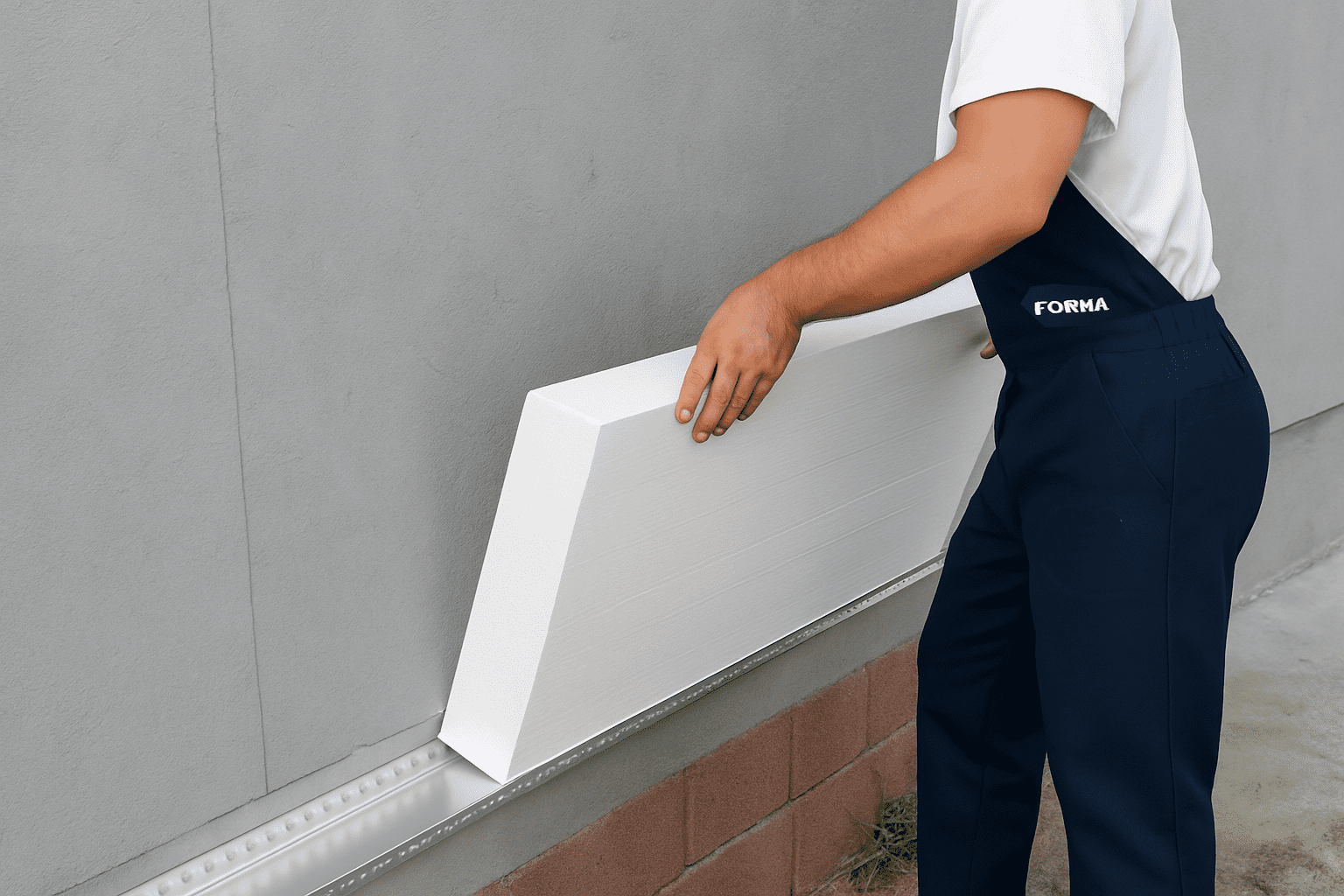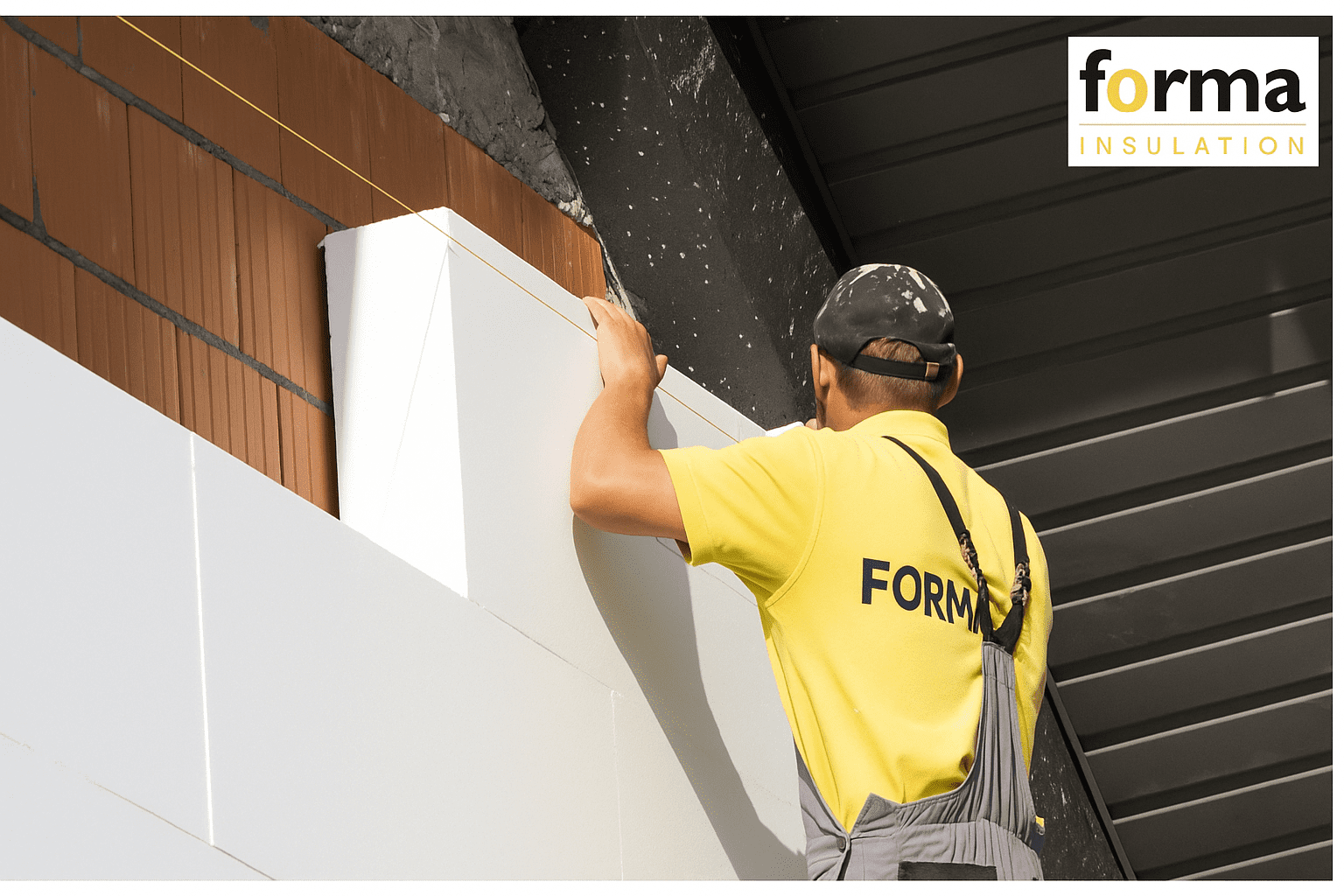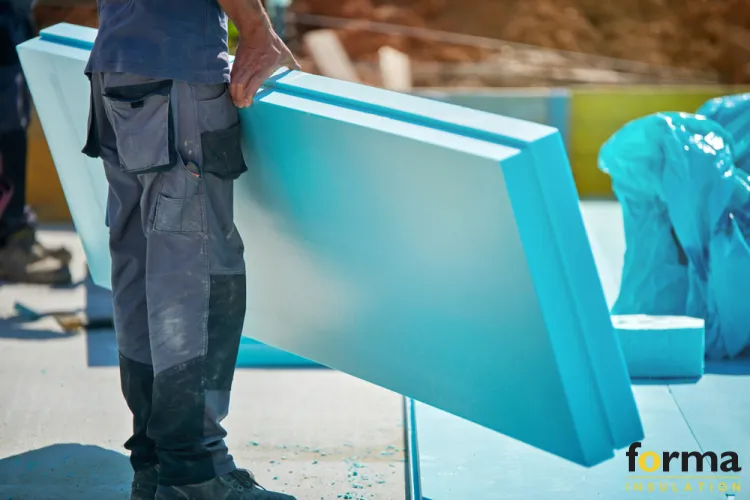Introduction
Expanded Polystyrene (EPS) is changing the way we build across Saudi Arabia, the UAE, Qatar, and the wider GCC region.
Known for being lightweight, durable, and energy-efficient, EPS offers builders and developers a modern alternative to traditional construction materials like concrete.
Let’s take a closer look at why EPS is gaining so much attention and how it can benefit your next project.
Table of Contents
What is EPS in Construction?
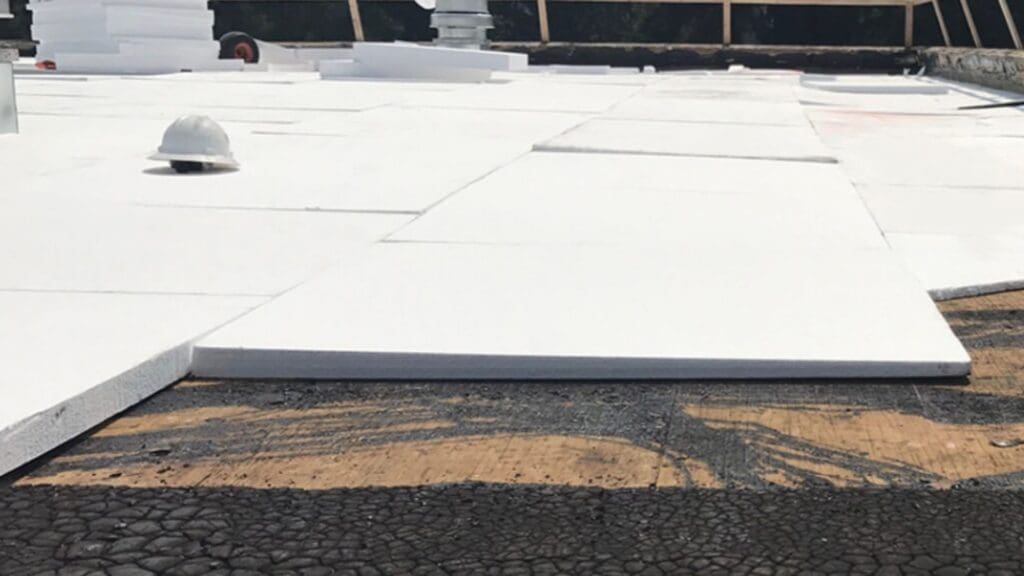
EPS is a lightweight, rigid thermal insulation material made by expanding tiny beads of polystyrene with steam.
It’s widely used in the GCC for wall panels, roofing systems, floor insulation, and even civil engineering projects like roads and bridges.
At Forma Insulation, we provide a full range of Expanded Polystyrene Sheets (EPS Sheets) designed to meet the demands of the region’s challenging climates.
How is EPS Made?
Expanded Polystyrene EPS is manufactured in three key stages:
- Pre-expansion: Beads are expanded using steam.
- Maturing: The beads are stabilized.
- Molding: The beads are fused into blocks or shaped into custom panels.
Read more:
Expanded Polystyrene (EPS) in the GCC Region: What You Need to Know
Our EPS Styrofoam Blocks are engineered to deliver consistent performance for a variety of construction and infrastructure applications.
Common Applications of EPS in Construction
EPS is highly versatile and is used across many sectors:
- Insulation for walls, roofs, and floors
- Lightweight fill for bridges, roads, and railway projects
- Structural wall panels for residential and commercial buildings
- Protective packaging for sensitive construction materials
Builders across the GCC rely on our EPS Geofoam Blocks for lightweight fill solutions and road embankments.
Types of EPS Wall Panels
There are two main types of EPS wall panels:
- Single Panel: A polystyrene core reinforced with welded wire mesh and shotcrete. Suitable for buildings up to four stories.
- Double Panel: Two single panels connected with a cavity in between for added strength. Ideal for structures up to fifteen stories.
Explore our complete EIFS Systems — a popular solution for exterior insulation and finishing across residential and commercial developments.

Is EPS a Better Alternative to Concrete?
When it comes to sustainability and energy efficiency, EPS has a clear advantage.
Concrete production is a major source of carbon emissions, while EPS is recyclable and helps reduce a building’s overall energy consumption.
EPS materials such as EPS Lightweight Fill help builders achieve green construction goals faster.
Why GCC Builders Are Choosing EPS in Construction?
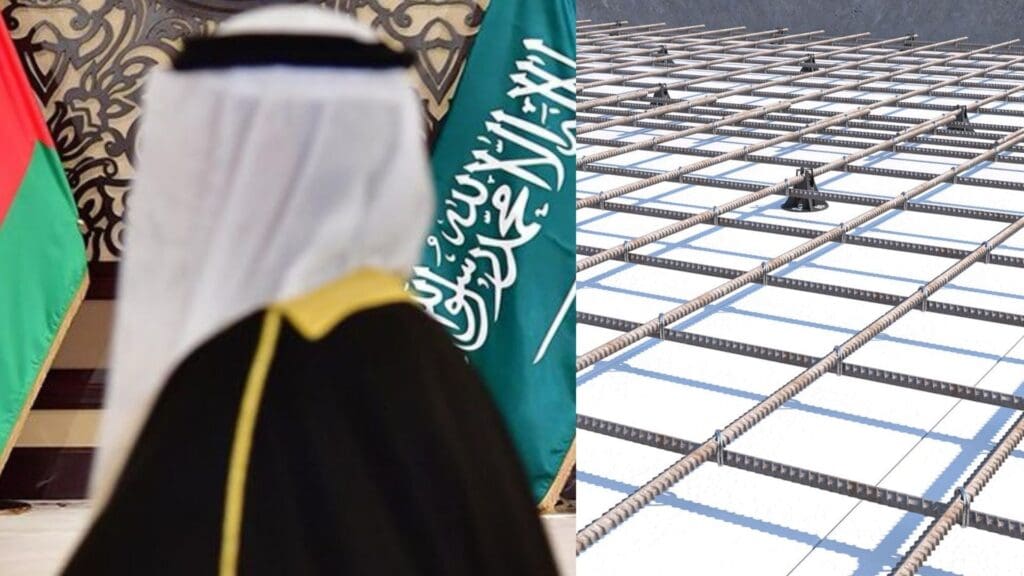
Let’s look at the key benefits:
- Excellent Thermal Insulation: Keeps interiors cooler and reduces energy costs.
- Lightweight: Easy to transport and install, saving time and labor.
- High Load Resistance: Ideal for road and civil projects using EPS Void Formers.
- Water and Moisture Resistance: Performs reliably even in coastal and humid environments.
- Fire Performance: Available with fire-retardant additives for enhanced safety.
- Cost Savings: Reduced construction and operation costs.
- Versatility: Perfect for custom solutions like EPS Dome Formwork and EPS Column Formwork.
Is EPS Suitable for Hot Weather?
Absolutely, EPS materials, such as Extruded Polystyrene Boards (XPS Boards), are specifically designed to perform under the intense heat common in Saudi Arabia, Kuwait, and the UAE. Their closed-cell structure ensures excellent thermal resistance and reduces cooling demands significantly.

How Long Does EPS Last?
With proper installation, EPS products — including Styrofoam Boards and EPS Formwork Systems — can maintain their properties for decades.
EPS resists moisture, fungal attacks, and aging, ensuring reliable long-term performance for a wide range of construction needs.
Build Better with Forma Insulation
EPS isn’t just another building material — it’s a smarter, greener, and more efficient solution for modern construction across Saudi Arabia, UAE, Qatar, Kuwait, Oman, and Bahrain.
At Forma Insulation, we offer a wide range of EPS and XPS solutions, from insulation panels to complex architectural EPS shapes.
Contact us today to learn how we can help you build stronger, smarter, and more sustainably!
FAQs
Is EPS insulation suitable for the extreme heat in Saudi Arabia and the UAE?
Yes, EPS insulation is highly effective in hot climates like those in Saudi Arabia and the UAE. Its closed-cell structure provides excellent thermal resistance, helping to maintain indoor comfort and reduce cooling costs.
Can EPS insulation be used in high-rise buildings in Qatar?
Absolutely. EPS insulation is lightweight yet strong, making it suitable for high-rise constructions. Its ease of installation and structural integrity have made it a preferred choice in Qatar’s urban developments.
How does EPS insulation perform in humid conditions like those in Bahrain and Oman?
EPS insulation exhibits low water absorption, making it resistant to moisture and humidity. This property ensures long-term performance even in the humid climates of Bahrain and Oman.
Is EPS insulation compliant with fire safety standards in the GCC?
EPS insulation can be manufactured with fire-retardant additives to meet regional fire safety standards. It’s essential to consult with suppliers to ensure compliance with specific building codes in your GCC country.
5. How does EPS insulation compare to traditional materials in terms of cost-effectiveness in the GCC?
EPS insulation is generally more cost-effective than traditional materials due to its lower installation costs, energy savings, and long-term durability, offering significant economic benefits for construction projects in the GCC.
